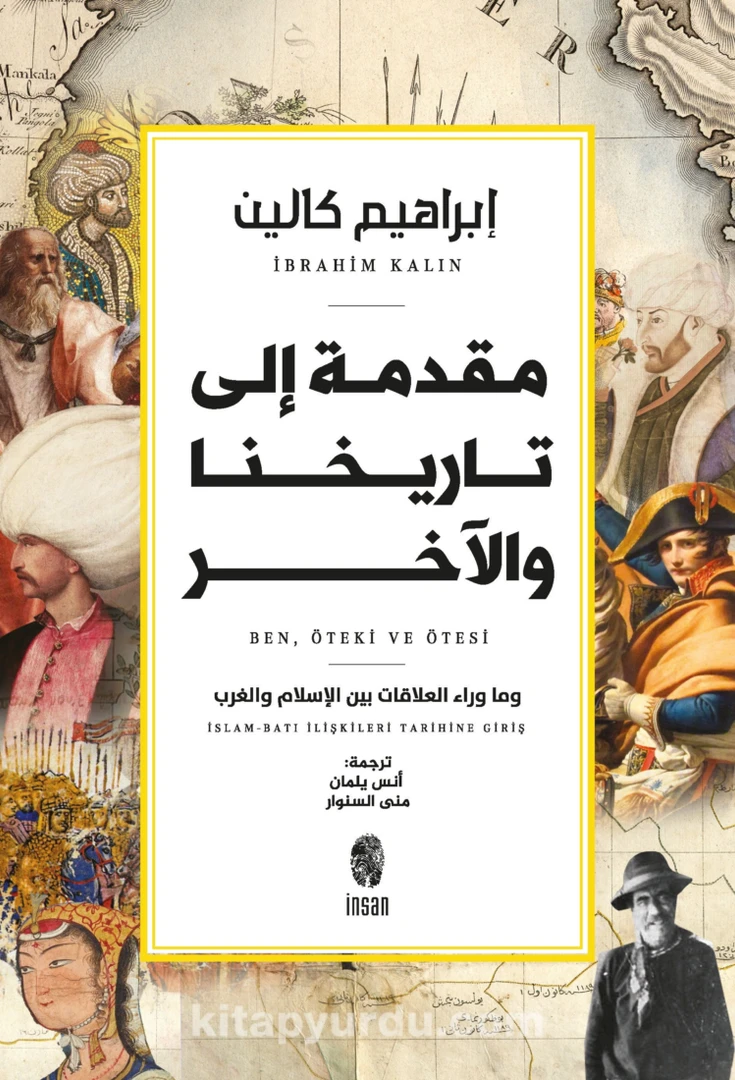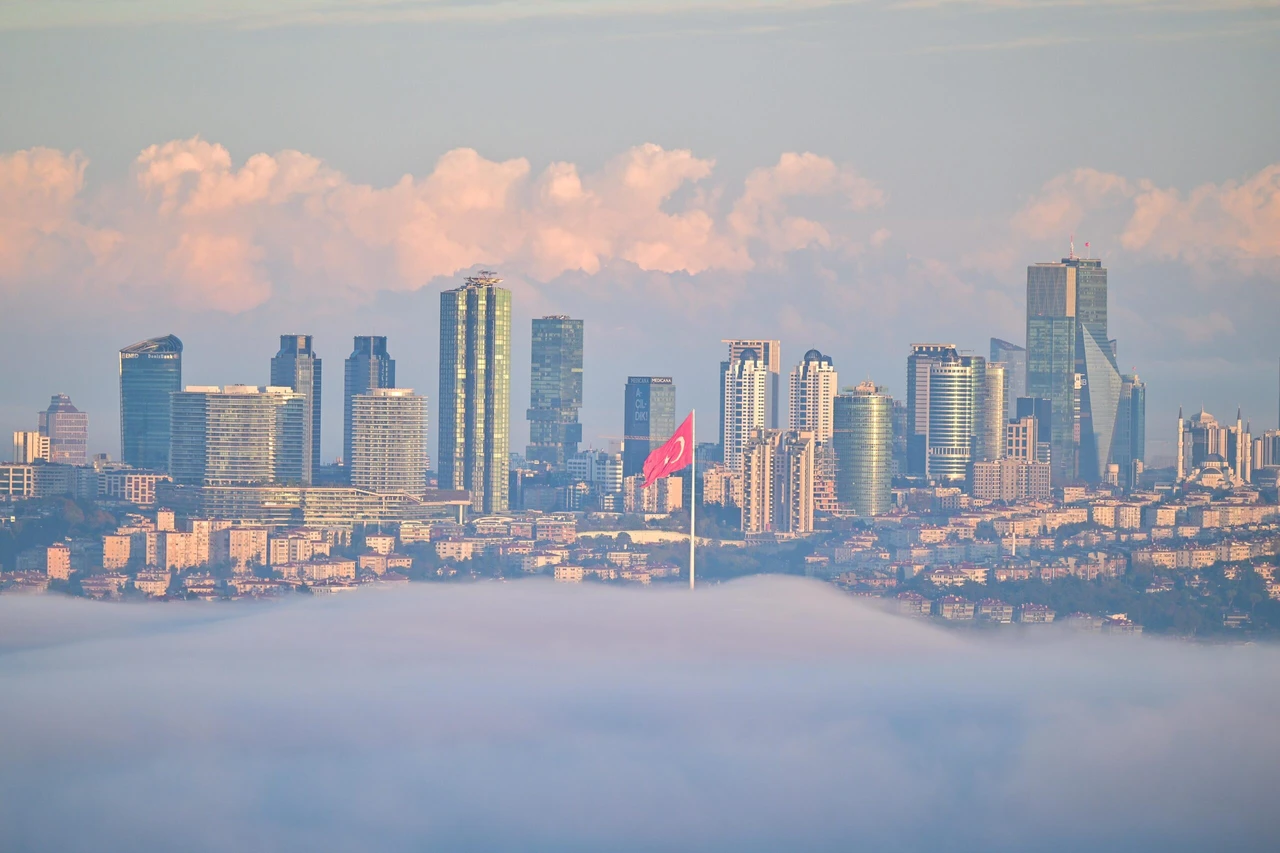Turkish literature quietly builds a new audience in Arab world
 Turkish Nobel laureate author Orhan Pamuk works at his desk at his former house in Istanbul, on Febuary 2, 2015. (Photo credit: AFP)
Turkish Nobel laureate author Orhan Pamuk works at his desk at his former house in Istanbul, on Febuary 2, 2015. (Photo credit: AFP)
Turkish television dramas have enjoyed immense popularity across the Arab world for years, captivating millions of viewers with their storytelling and production quality. But now, a quieter cultural shift is underway. Turkish literature—rich, layered and often politically or philosophically charged—is beginning to make significant inroads in Arab intellectual life.
This emerging trend is more than just an extension of pop culture. In recent years, Türkiye’s efforts to open up to the Arab world from an economic aspect to a political sense have significantly increased cultural closeness between the two regions.
Investigative journalist Esat Firat highlighted that the rapprochement between Türkiye and MENA states, particularly after the Arab Spring, has created a significant cultural interaction environment between Türkiye and Arab peoples. Firat stated that the growing ties between Türkiye and Arab countries have established a strong tourism and trade network, increasing the demand for learning Turkish and recognizing the culture more deeply.
“Yet while many Arab readers may not be familiar with the names of leading Turkish authors in modern literature, recent years have seen a remarkable increase in the translation movement from Turkish to Arabic,” Ahmed Yusuf, a Turkologist and CEO of the media company Fokus+, points out. Turkish novels and poetry are being introduced to Arab readers, gradually enriching Arabic libraries.
From drama to depth: Turkish Literature carves out space in Arab world
Initially, many works were translated into Arabic without proper copyright clearance. These early, unofficial editions—mostly translated by Arabs who had studied in Türkiye—still managed to attract considerable interest. As a result, Arab publishing houses began paying closer attention to Turkish literature, eventually leading to more professional, rights-respecting translation efforts.
Speaking to Türkiye Today, Yusuf, who is also an experienced journalist, remarked that literature allows for a far more nuanced understanding of Turkish society and history.
Literature helps us understand Turkish society, history, and its transformations on a deeper level. So, translating and publishing Turkish literature isn’t just a cultural preference—it’s a necessity.
According to him, while names like Orhan Pamuk and Elif Shafak have global appeal, their works have also found dedicated readerships across the Middle East. Pamuk’s “The Black Book” and “My Name is Red,” along with Shafak’s “The Forty Rules of Love,” are among the most widely read Turkish novels in Arabic-speaking countries.
Other classic works, such as Sabahattin Ali’s “Madonna in a Fur Coat” and Resat Nuri Guntekin’s “The Fall of Leaves,” have also entered the Arab literary conversation, suggesting that interest isn’t limited to contemporary authors.
Omair al-Amar, a translator who’s behind some of the most significant Turkish-to-Arabic literary translations, however, thinks that there’s a structural problem underneath. “Many important Turkish authors are barely known in the Arab world simply because they’re not well recognized in the West—so they don’t get translated into Arabic,” he says. He points out how writers like Elif Shafak, who publishes in English, often gain wider access abroad and therefore reach Arab readers indirectly through Western exposure.
This, he adds, reflects a broader cultural disconnect: “It’s unfortunate that the Arab world often gets to know Türkiye through the West, rather than directly.” His portfolio, hence, includes some of the most widely read works of contemporary Turkish literature, such as Oguz Atay’s “Tutunamayanlar” (published by Kuwait’s Al Kaytab) and Ahmet Umit’s “Olmayan Ulke” (released by Kalimat Group in the UAE), as well as select poetry from Nazım Hikmet.
He also says that his journey of learning the Turkish language began not with the space of pop culture, media, music, or series but with literature.

Institutional support for Turkish literature in Arab world
The landscape, however, is changing. In recent years, closer ties between the Arab and Turkish academic communities have sparked more collaboration in publishing and translation.
Turkish institutions are now playing a more active role. The TEDA Project (Support for the Translation of Turkish Culture, Art and Literature), run by Türkiye’s Ministry of Culture and Tourism, has funded the translation of a wide range of titles into Arabic.
This includes not only novels but also intellectual and political works such as Said Nursi’s Risale-i Nur Collection, Ibrahim Kalın’s Barbar, Modern, Civilized, and Ahmet Davutoglu’s Strategic Depth. These texts are helping position Turkish thought within Arab academic and policy discussions.
On that point, Yasin Beyaz from Yalova University states that Ain Shams University in Egypt has made very important contributions in introducing Turkish literature to the Arab academia.
Türkiye’s interim charge d’affaires to Syria, Burhan Koroglu, for instance, was among the ones who were awarded The Sheikh Hamad Award for Lifetime Achievement, one of the Arab world’s highest literary and translation prizes.
The 32nd Abu Dhabi International Book Fair, organized in Abu Dhabi in 2023, was also an indicator event as it was announced to be the year of Turkish literature, and that Turkish writers and poets such as Ahmet Umit, Besir Ayvazoglu, Omer Erdem and Sunay Akin were invited to represent Türkiye.

Translation as cultural infrastructure
Much of this progress has been made possible by a growing ecosystem of dedicated translators and publishers,” said Ahmed Yusuf. “Translators such as Abdullah Harun—who brought the works of both Orhan Pamuk and Nazım Hikmet into Arabic—along with Sami ed-Droubi, Fayza Merzouk, and Ahmed Hassan, have played a central role in this movement. Authors like Ibrahim al-Koni and Mahmoud Kahila have also contributed to spreading Turkish literary works throughout the region.”
According to the digital media executive Yusuf, translation efforts have extended well beyond fiction. Turkish poetry—often overlooked in mainstream cultural exports—has begun to gain traction in Arab literary circles. “Poets like Nazım Hikmet and Orhan Veli Kanık have been especially well received,” he noted. “In recent years, there’s also been a push to introduce Arab readers to other influential figures such as Mehmet Akif Ersoy, Sezai Karakoc, and Ismet Ozel.”
Yusuf emphasized that these poets offer themes, ranging from resistance and spirituality to modernity, that deeply resonate within Arab literary and political contexts.
Numbers tell a story—And show the gap
Still, the overall volume of Turkish-to-Arabic literary translation remains modest. Citing research by Turkish writer and translator Mehmet Hakki Sucin, Ahmed Yusuf points out that as of 2015, approximately 300 Turkish literary works—including novels, short stories, and plays—had been translated into Arabic. In contrast, translations from Arabic into Turkish are more numerous, highlighting a persistent gap in bilateral literary exchange.
Yusuf stresses that despite these limited advances, expanding this cultural bridge will require more strategic, coordinated efforts between governments, publishers, and cultural institutions.



